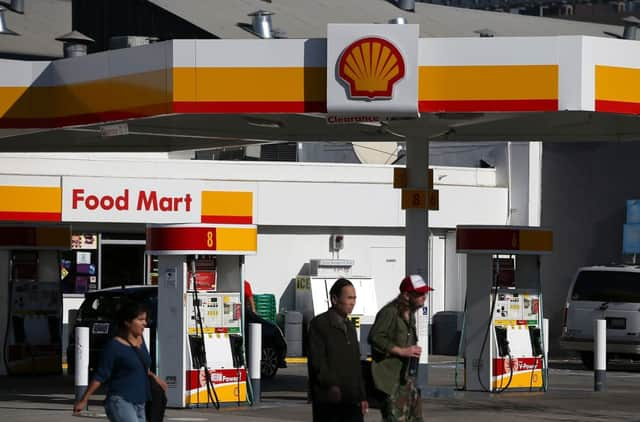Shock profit warning raises pressure on Shell chief


Van Beurden admitted the performance in the fourth quarter was “not what I expect” as he revealed the figures are likely to be “significantly lower than recent levels of profitability”.
Shell’s underlying earnings for the period are now expected to almost halve to around $2.9 billion (£1.8bn), well below market expectations of $4bn. This is set to leave full-year results 23 per cent lower at $19.5bn.
Advertisement
Hide AdAdvertisement
Hide AdShares in the group fell more than 4 per cent at the market opening but recovered much of the lost ground to close down 1.15 per cent, or 26.5p, at 2,279.5p.
Analysts said the warning highlighted wider issues in the oil market.
Carsten Fritsch at Commerzbank said the warning was a confirmation of the impact of the downward trend in oil prices seen.
“In particular, the refined product markets in Europe have been very weak.”
Neill Morton at Investec Securities said Shell had never before issued a profit warning ahead of its full-year earnings.
He added: “Shell has broken with its recent custom of disappointing on earnings day – it is now dishing up the bad news ahead of time.”
Neil Shah at Edison Investment Research, also warned of the possible knock on impact on the sector.
“If Shell catches a cold, the rest of the oil sector will always wonder if they will catch flu,” he said. International oil prices have averaged about $110 a barrel for the past three years, down from a peak of of $145 seen in 2008.
Advertisement
Hide AdAdvertisement
Hide AdBooming shale oil production in the United States has helped lower prices there, however, and delivered a competitive advantage to many US refineries.
The United States has also become a major exporter of gasoline and diesel, further hitting profit margins at refiners in Europe and Asia.
While Shell has a number of refineries in North America, about two-thirds of its refining operations are in Europe and the Asia-Pacific.
The group’s weak performance was also due in part to outages in its liquefied natural gas (LNG) sector.
“With nearly a fifth of its LNG portfolio down for maintenance, the final quarter of 2013 was never likely to be a good quarter for Royal Dutch Shell,” said analysts at Barclays, but it added that the company remained its ‘top pick for 2014’ as it still had a strong free cash flow position.
Shell became a leader in LNG under van Beurden’s predecessor Peter Voser, who rebuilt the oil company following the reserves accounting scandal.
Voser believed fervently that an oil major needed to continue to invest throughout an economic cycle, rejecting calls from investors and analysts to cut back.
Van Beurden appeared to confirm that approach today.
“Our focus will be on improving Shell’s financial results, achieving better capital efficiency and on continuing to strengthen our operational performance and project delivery,” he said.
Shell is due to report its full-year results on 30 January.